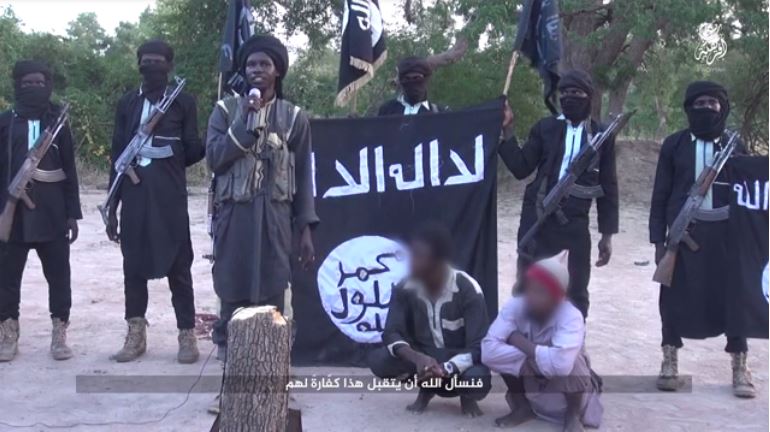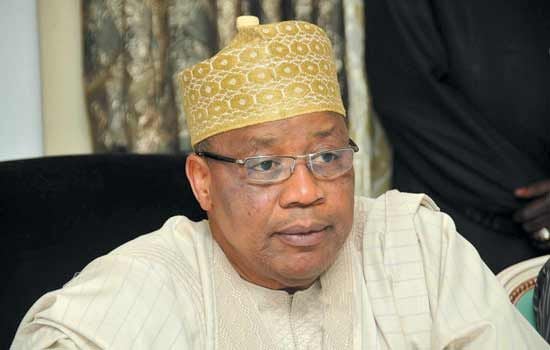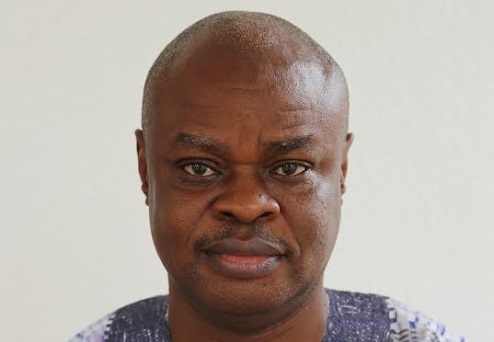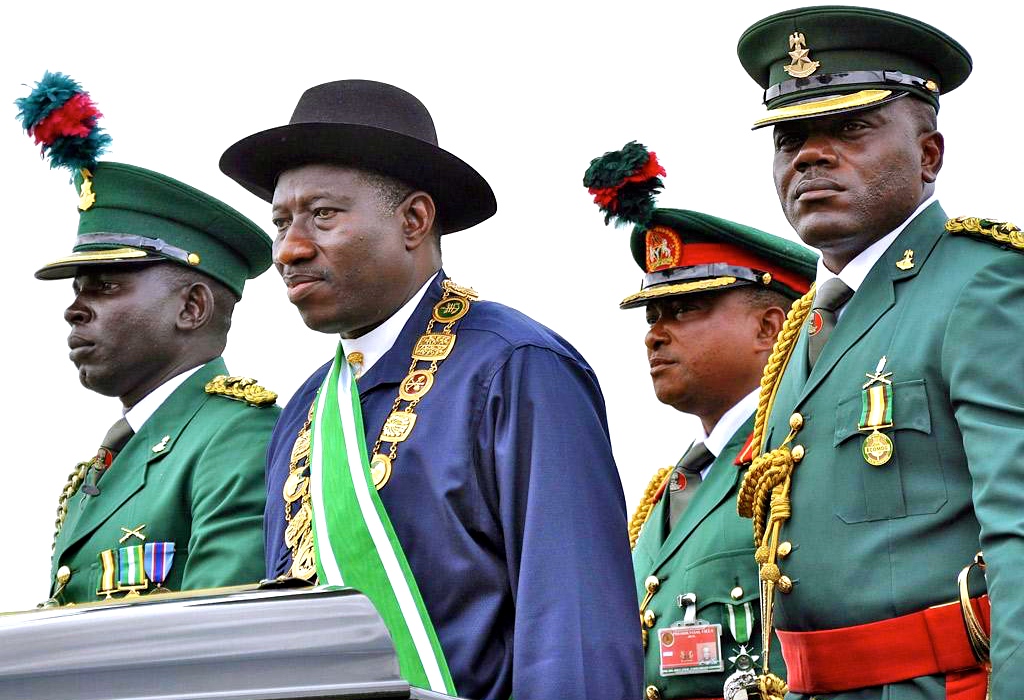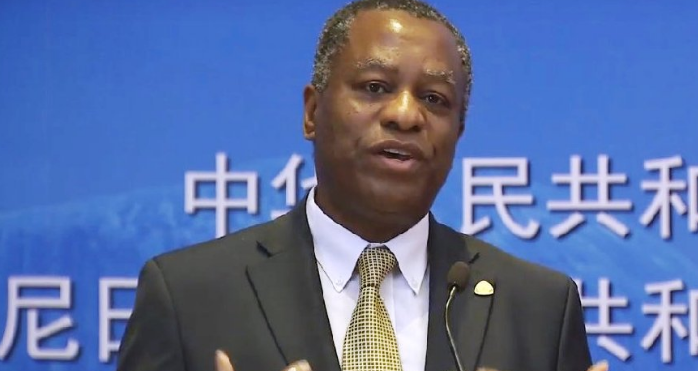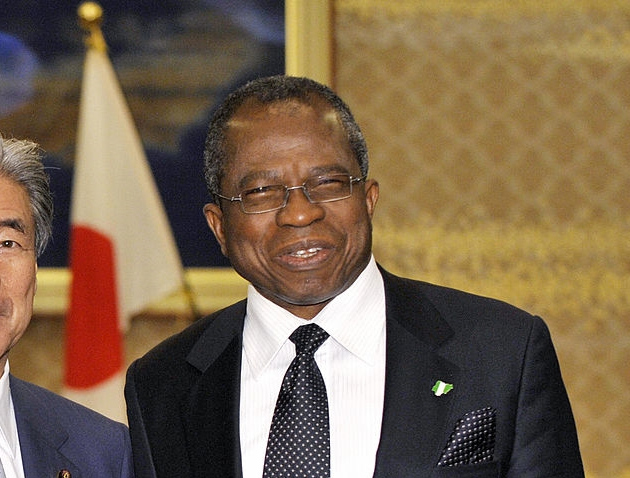The latest video released by Boko Haram showing a section of the missing Chibok girls should serve as incentive for deeper introspection. At the official level, perhaps the moment has come to rethink a counter strategy that increasingly looks impotent, if not suspect; even as public communication is weaned of words that now sound more like broken record.
In the eleven-minute-long recording, the Abubakar Shekau-led faction unambiguously restated its old demand that its members held across the country be released as pre-condition for the release of the over 200 remaining Chibok girls. As usual, a masked guy (Shekau?) in military fatigue is shown blustering beside the girls who look expressionless in hijab against an eerie black backdrop.
No prize for guessing the possible motives behind Shekau’s latest stunt. Like any movement not inspired by an enduring or lofty value, the accursed Boko Haram (BH) is obviously already choking on its grotesque contradictions. With ISIS seeking to disrobe him by naming Abu Musab al-Barnawi as the new leader, it is evident the bloodthirsty fugitive is desperate for a pitch to demonstrate his nuisance value to the Nigerian authorities.
True, hostage-taking in Nigeria did not start in April 2014 with the Chibok girls. But with the twists and turns witnessed in the past 28 months, this should be the most dramatized in human history. It is like a slow-motion horror movie. The spectacle of aggrieved mothers fellowshipping periodically, holding vigil, at a hearing distance from Aso Rock gates in Abuja has become a constant source of national embarrassment.
Advertisement
Well, we are free to elect to live blissfully in denial by conveniently making generous allowance for Shekau’s blustering in the latest video and the possible exaggerations – like claims that Nigeria’s airstrike had killed many of the girls. But the next footage in the flick should be enough to sting us back to cold reality: the face and voice of one of the captives, Dorcas Yakubu.
Speaking both Hausa and her native Kibaku in a voice that strikingly sounds accustomed to the tragic fate she and others find themselves, the teenager urged parents to “be patient and beg the government to release their people, so that we’ll also be released.”
Caught between joy at a proof their daughter is still alive and sorrow at the thought of the unthinkable she must have endured in the past 28 months, Dorcas’ parents, Mr. & Mrs. Kabu Yakubu, could only afford to make a loud sigh in Abuja after watching the new video. Their testimony: “We cried when we saw our daughter but we’ll sleep better now.”
Advertisement
They spoke from the very depth of anguish every true parent will feel.
For others who could not see or hear their loved ones, the nightmare obviously continues.
Today, what however remains unknown is if, beyond the mouthing of platitudes and shedding of crocodile tears, anyone in Abuja truly feels the kind of soul-wrenching pain parents of the Chibok girls have endured in the past 28 months to want to literally move mountains to free the captives.
The dumbest apology to give today is to say Buhari is ready to negotiate with BH but is handicapped over which faction to talk to. Unless the government wants us to believe its intelligence-gathering capacities and capabilities are dead and so now fit only for the cemetery.
Advertisement
Legion stories are told of how western nations like Britain had passed credible intelligence to the Jonathan administration on the precise location of the Chibok girls earlier in the day but, as usual, it refused to lift a finger until it became too late. In fact, one account states that the girls were initially camped on the other side of the river for several days in April 2014 without any intervention by the authorities until they were presumably herded deep into the dreaded Sambisa forest.
But lamenting missed opportunities is no longer defensible today. What we want now is result by any means necessary, realizing that each passing day means a continuation of their abuse in captivity.
Elsewhere in the west, the mere echo of Mr. & Mrs. Yakubu’s words, to say nothing of the sheer spectacle of their presence, would be enough to drive leaders into extra-ordinary exertions with a view to liberating citizens so held in bondage, anywhere. In the circumstance, such leaders begin to pick and choose sections of the Geneva Convention to obey.
Officially, the tendency is for western nations to openly pontificate that ransom-payment in turn fuels terrorism. That cash paid is soon invested by the receivers to buy new weapons and finance training. But unofficially, countries like Italy, Germany, France and Spain are known to have paid ransoms through private companies to free their nationals from terrorists, convinced that the end ultimately justifies the means.
Advertisement
UK, for instance, is known to turn a blind eye if relations or companies slipped cash to have their loved ones freed. That was how Judith Tebbuth’s release was secured in 2012. In 2014, the same tactic was employed to secure the release of teacher David Bolam from the clutches of ISIL in Libya.
Same year in the US, the Obama administration swapped five Al-Qaeda suspects held at the Guantanamo detention facility for one American soldier, Sergeant Bowe Bergdahl, after five years in captivity, whipping the sentiment of an ironclad commitment “to leave no man or woman in uniform behind on the battlefield”. Washington engaged the government of Qatar as the go-between in the indirect negotiations.
Advertisement
Decades earlier, the Reagan administration did something far more unorthodox to free seven US hostages held by Iranian terrorists in Lebanon. Despite subsisting arms embargo against Tehran, Washington opted to sell arms secretly to Iran during its war with Iraq in a complicated covert deal that soon birthed the Iran-Contra scandal. Once the illicit cargoes began to berth in Tehran, three of the US hostages in Beirut were let off, though three more were taken in what a Washington top official later described cynically as “hostage bazaar”.
More filth surfaced in 1986 after a Lebanese newspaper blew the whistle on the secret deal. Not only was Reagan exposed, it was also discovered that only $12m out of the expected $30m had reached government coffers. It soon came to light that the balance had been diverted to fund the contra rebels being propped by Washington to combat the communist government in Nicaragua since the US congress had outlawed such direct monetary aid through formal channel.
Advertisement
To be fair, President Buhari only inherited the Chibok girls issue. Still, the government deserves credit for rallying a relentless campaign against BH in the past fifteen months so much that relative peace has now returned to the hitherto beleaguered North-East, even as it is left to face a huge refugee crisis. But to suggest that the war is now totally over as the military high command is wont to claim lately with the over 200 Chibog girls still unaccounted for is to miss the human angle to the historic tragedy.
One lesson the Buhari people appear not to have learnt from the Jonathan mishap is rehashing the same rhetoric each time the Chibok girls question is raised. The other day the Information Minister reassured that the government was still on top of the situation. Well, Lai Mohammed just said what is expected of him. Really, no one can say the president has forgotten the Chibok girls. After all, he gave a plum appointment to one of the conveners of the BringBackOurGirls Group. And since Ms. Hadiza Usman assumed duties as the Managing Director of the Nigerian Ports Authority, at least one of the eloquent BBOG voices has since become muted. Even if she is not too engrossed sorting cargoes at the Lagos ports to forget or have time to attend the BBOG fellowships in Abuja, her presence there today will certainly be incongruous.
Advertisement
Really, what the aggrieved parents desire and indeed deserve is not just tons of nice words from Mohammed. If truly the government is quietly moving mountains to get the girls released, it ought to device an effective channel the information is shared with the traumatized. Had this been the case, it is doubtful if Oby Ezekwesili and other committed activists will continue to speak so bitterly each time they congregate at the Unity Square in Abuja. But for the uncommon patriotic zeal of these volunteers, perhaps the memory of the abducted would have long faded, if not totally extinguished, by now.
Again, whoever counseled the Army authorities to publicly declare wanted last Sunday three individuals known to have links with Boko Haram did the nation a disservice. If the measure was intended to project the authorities as being proactive, it has surely backfired. For no sooner had the announcement been made than the duo of Mrs. Aisha Wakil (aka Mama Boko Haram) reported at the Defence Headquarters in Abuja and lawyer Ahmed Bolori turned himself in at the Army Headquarters in Maiduguri. Journalist Ahmad Salkida expressed willingness to travel down from his Dubai base once he receives ticket fare.
Mama Boko Haram, for instance, soon expressed disgust that the Army could go ahead and declare her wanted like a fugitive when, according to her, they knew her address and how to reach her.
The Army spokesman later explained that the trio were invited out of a belief that they knew more than they were willing to share vis-a-vis the location of the abducted. A claim the accused did not deny. From the utterances of Mrs. Wakil and Bolori after meeting with the military authorities, it would appear they are more than willing to be engaged in the search to rescue the missing girls. The trio is not alone. A serving senator, Shehu Sani, is also known to have links with the BH leaders. Rather than alienate or demonize them, such individuals ought to be co-opted into the search for the missing girls as a matter of national urgency.
In the unlikely event that all the remaining captives are being assembled in one location, given the young lives involved, let it however be stressed that no one is advocating a re-enactment of the daring Entebbe raid of 1976 when Israeli commandos stormed Uganda’s International Airport in Kampala to free 100 of their nationals being held hostage by pro-Palestinian gunmen. After a 35-minute fire-fight, the toll exacted was not only heavy in human but also in material terms: three hostages lay dead beside seven hijackers, twenty Ugandan troops and the leader of the invading unit, Lt. Colonel Yonatan Netanyahu (brother of future Israeli Prime Minister). Completely wrecked also were eleven Russian-built MiG fighters of the Ugandan Air Force.
Nor can anyone afford a repeat of the Moscow solution applied in Russia in October 2002 following the hijack of a theatre by some 50 Chechen rebels. A record 700 theatre-goers were taken hostage. After a 57-hour-standoff at the Palace of Culture, the Russian special forces who had surrounded the hall were at their wits’ end. In what became one if the worst rescue operations in history, they resorted to the quick fix by simply lobbing a pipe into the hall through which a lethal narco gas was discreetly sprayed. By the time the fume settled, no fewer than 120 hostages and most of the militants had been wasted. The official defense was that gassing was the most prudent option in the circumstance to disarm the militants before they had time to detonate their explosives.
In the two foregoing scenarios, the casualty toll was quite heavy. While no one will at this point prescribe a similar raid on the location where the Chibok girls might be kept, several other options remain open to Abuja with a view to quickly bringing a closure to what has clearly become one of the darkest chapters in the nation’s history. Swapping, as already mooted by the affected, is not a bad idea.
In case President Buhari is still unaware, the hour has finally come to bring back our girls.
Ghana improves on ‘stomach infrastructure’
In more than one way, Ghana is showing Nigeria superiority. In chronological age, the country once addressed as “Gold Coast” already comes first: she got her independence in 1957, three solid years ahead of Nigeria (1960).
It is only in upending democracy that she was slightly overtaken by her Anglophone neighbour: military putschists struck in Accra a month (February 24, 1966) after the “5 Majors” rumbled in Lagos (January 15).
In contemporary terms, while it is true Nigeria discovered oil first, Ghana, a newcomer in the sector, is fast evincing more gumption.
Despite its manifest innumerable benefits, the Petroleum Industry Bill (PIB) is yet to be passed into law in Nigeria as our political actors continue to put personal/sectional interests before country.
But without much ado, the Ghanaian congress took a bi-partisan route and turned PIB to law few days ago.
Now, Ghana has transited to the realm of creativity. Since All Progressives Party (APC) was shellacked in the governorship polls in Ekiti State in 2014, Peoples Democratic Party (PDP) has often gloated one magic formula – “stomach infrastructure” – did it. Claiming to understand the psychology of politics better than the competition, PDP postulates that physical offer of a “congo” (measure) of rice, salt and “wedging” that cocktail with token cash on election eve is far more irresistible to most voters than the catalogue of infrastructural projects delivered for public use. Since it worked in Ekiti, PDP was then quick at laying claims to the patent right of “stomach infrastructure”.
But, as usual, Ghana has exposed the structural inadequacies of that Nigerian creation by simply proceeding to stretch “stomach infrastructure” to its culinary limits. With campaigns revving up ahead of their forthcoming presidential elections, members of the National Democratic Congress, the ruling party in Ghana, have been bringing the unusual to rallies: jollof rice massed cooked in massive pots. Those interested were encouraged to help themselves to the feast as campaign “starters”.
At a recent rally, a foot-soldier of NDC was seen squabbling with a serving female minister during a session of jollof rice (as pictured). The message should however not be lost: if they serve raw foodstuff in Nigeria, in Ghana value is already added to the condiment before offer is made to the people.
Views expressed by contributors are strictly personal and not of TheCable.
Add a comment

